
Stockbyte/Stockbyte/Getty Images
Skim milk is a low-calorie beverage that may be useful for a variety of nutrition and athletic goals, including bodybuilding and fat loss. Skim milk may be preferable to whole and reduced-fat milk because it contains no fat, but still provides protein, a nutrient that supports fat loss and muscle gain. While skim milk can support your goals, your entire diet and exercise routine will determine your success.
Calorie Content
Skim milk can support fat loss because it contains fewer calories than other beverages. An 8 oz. serving of skim milk contains just 80 calories, while the same-sized serving of regular milk contains 160 calories. If you consume 2 cups of milk each day, you'd save 1,120 calories weekly by switching from regular milk to skim; this amount is enough to lose about 1/3 of a pound, independent of any other dietary changes. Skim milk's low calorie content can be detrimental for bodybuilding, as you'd have to drink nearly 3 cups of the beverage to support an hour-long weightlifting session, which burns 219 calories.
Protein Content
Skim milk is rich in protein, with 8 g of this nutrient per 8 oz. serving. Protein is beneficial for bodybuilding because it provides your body with the amino acids needed for muscle recovery and growth. Additionally, protein is beneficial for weight loss; a study from the April 2011 edition of "Nutrition Journal" found that high-protein diets were more effective for weight and fat loss than diets high in fiber, a nutrient that promotes satiety.
Carbohydrate Content
While protein is commonly considered the most important nutrient for bodybuilding, carbohydrates are important as well. Carbohydrates provide your body with energy, so it can help fuel your workouts. Each 8 oz. serving of skim milk contains 12 g of carbohydrates. A high carbohydrate intake may not be preferable for losing fat; research from the April 2011 edition of "The British Journal of Nutrition" indicates that high-protein diets that are low in carbohydrates produce more weight loss than high-protein, high-carbohydrate diets.
Fat Content
Skim milk does not contain any fat, which can be helpful for fat loss, as dietary fat is high in calories. If you are bodybuilding, you may prefer reduced-fat milk or whole milk, as the increased fat content will increase the calorie content of the beverage, making it easier to achieve the calorie surplus you need to grow muscle.
Vitamin D Content
Some brands of skim milk are enhanced with vitamin D, which may be beneficial for both bodybuilding and fat loss. A study from the March 2011 issue of "Hormone and Metabolic Research" suggests that boosting vitamin D consumption can increase testosterone levels. Testosterone is a powerful hormone that promotes fat loss and muscle gain.
Related Articles

Milk Protein for Skin Care
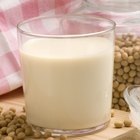
Is Soy Milk Casein-Free?

How to Deal With a Bipolar Woman

How to Not to Smother a Girl
Diets of Asian Martial Artists
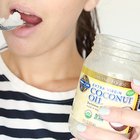
Skin Benefits of Eating Coconut Oil
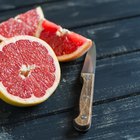
What Are the Benefits of Grapefruit for ...
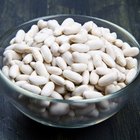
Cannellini Beans for Weight Loss
How Many Calories Are for Breakfast, ...
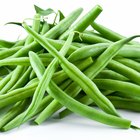
Nutritional Value of Dehydrated Green ...
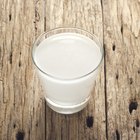
Why Is Milk So Fattening?

Nutrition Information on Blueberries

How to Console a Friend Who Was Fired

L-Carnitine for Cellulite

Cappuccino Nutrition Information

Vitamins for Mental Alertness
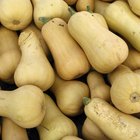
How Many Calories Are in Butternut ...
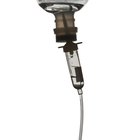
Jevity Nutrition Information

Estrogen in Skin Creams

Is Muscle Milk Safe for Children?
References
- LIVESTRONG.COM MyPlate: Calories in Skim Milk
- LIVESTRONG.COM MyPlate: Calories in Milk
- MayoClinic.com; Exercise for Weight Loss: Calories Burned in 1 Hour; December 2009
- "Nutrition Journal"; Comparison of High Protein and High Fiber Weight-Loss Diets in Women with Risk Factors for the Metabolic Syndrome: A Randomized Trial; L.A. Te Morenga et al.; April 2011
- "The British Journal of Nutrition"; Effects of a High-Protein, Low-Carbohydrate vs. High-Protein, Moderate-Carbohydrate Weight-Loss Diet on Antioxidant Status, Endothelial Markers and Plasma Indices of the Cardiometabolic Profile; A.M. Johnstone et al.; April 2011
Resources
Writer Bio
Brian Willett began writing in 2005. He has been published in the "Buffalo News," the "Daytona Times" and "Natural Muscle Magazine." Willett also writes for Bloginity.com and Bodybuilding.com. He is an American Council on Exercise-certified personal trainer and earned a Bachelor of Arts in journalism from the University of North Carolina.
Photo Credits
Stockbyte/Stockbyte/Getty Images